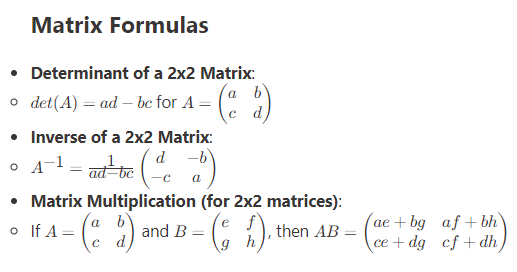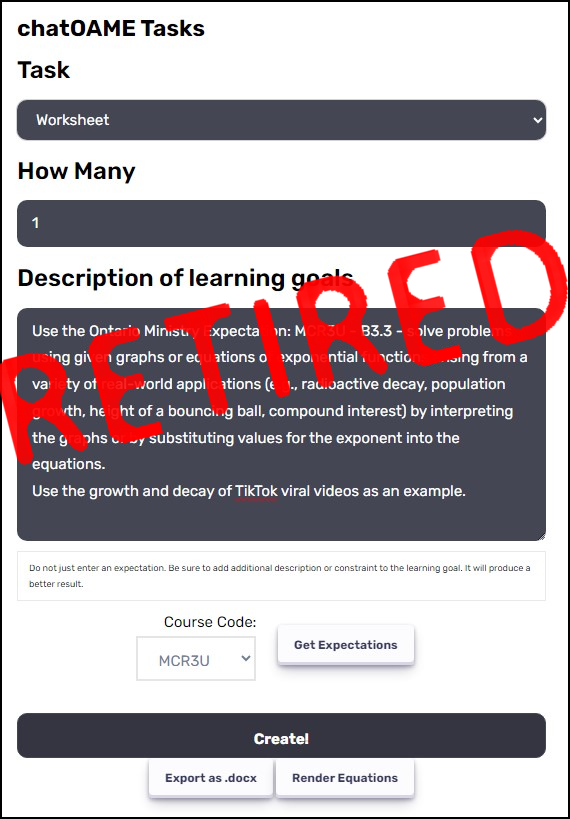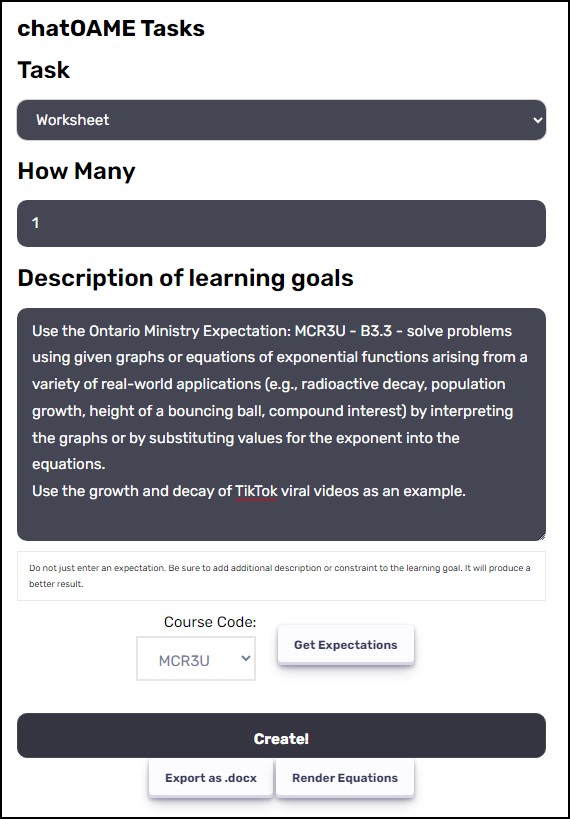I’m an occasional participant at the Math Forum at the Fields Institute in Toronto. It’s a meeting of folks interested in math education research held monthly; I’d get there more but academic and other responsibilities often overlap. Even today I was supposed to be at school for Homecoming but it’s been a year since I made it and the topic, on teacher-coaching, was well worth it.
At lunch, I sat myself amongst some folks I didn’t know and the conversations ranged wildly. At one point, the conversation turned to how teachers had lost the respect of the public, that it was different in the past, and so on. Blame was placed on the former provincial government for taken an aggressive and demeaning approach to teachers. And I’m certainly not denying there is some truth in that effect that government had on the perception of our professionalism. But there’s more to it than that.
The woman who initiated the conversation gave the example of a parent who had called her with a question. The teacher was quite offended that the parent said that his son “Chris doesn’t believe you’re helping him enough.” Now, she even corrected herself when she changed the word “believe” from “think” and how she then explained what extra help options were available to Chris. I didn’t get a chance to add to the conversation because another tablemate (thankfully) quickly changed the topic to the pronunciation of certain Swahili words.
This teacher seems to be mistaking respect with obeisance— she seemed indignant; the parent had no right to ask her a question about the instruction in or out of her classroom. I even think the parent phrased the question respectfully; the teacher could have quoted the parent with “I don’t think you’re helping Chris enough” but the teacher was specific in how she remembered the conversation, the parent was already placing the responsibility for the misinformation on the student.
Our classrooms, our instruction, our approach, our philosophy should not only be clear and open with our parents but also open to being questioned — the wonderful thing about the age of communication is the opening of discussion. And not just discussion — the simple distribution of information on homework, assignments, testsextra help times. I still remember a time when you would go to the doctors and take their direction without questioning. Not nowadays — there are other perspectives, updates in the field that an interested participant may bring to the table.
I know some of my parents aren’t happy with my approach to mathematics teaching. They want pat formulas & algorithms that will help them help their kids at home; they don’t want to see their children struggle with hard problems or not know all the answers when they used to in previous classes. They want to see worksheets and pages of questions like they remember. They want marks to be added up and averaged. And I understand their concerns and I’m always happy to take time out to explain the hows and whys of my choices in our classroom. Their questioning is not dis-respectful; in fact, I think it’s part of their parental responsibility to question if they have concerns.
What is disrespectful is not supporting the teacher outside the school. Like a couple with shared custody, we have to work as a team and can’t be disparaging of the other, even if we don’t necessarily agree with them. It’s not always easy to share custody but it is possible.
![Reblog this post [with Zemanta]](http://img.zemanta.com/reblog_e.png?x-id=78700b1a-7e3c-44b0-acd9-495c77a92f0d)


